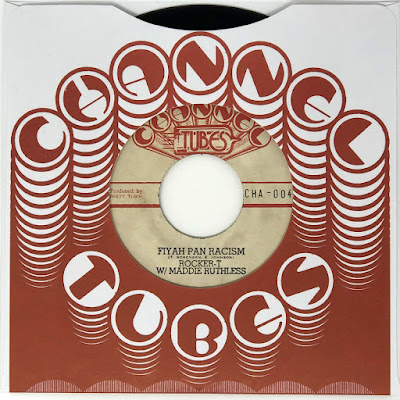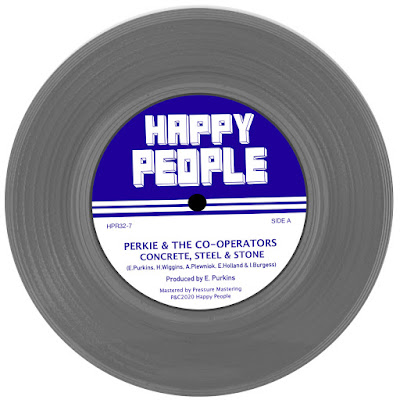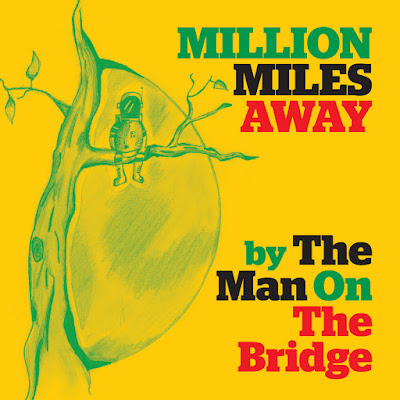(Reviews by Steve Shafer)
- I had the good fortune to catch The Caroloregians when they played in Brooklyn in 2010 (read my review of that gig and watch the videos I shot) and was blown away by their soulful funky reggae (make sure to check out their Funkify Your Reggay album on Grover and split LP with The Moon Invaders Hot Blood in Cold Weather from Jump Up). While the band is no longer around, their music (obviously) lives on (and members have gone on form Pyrotechnist and The Badasonics). "From the Congo Square" and "You Got to Be a Man" (Vinyl single/digital, Happy People Records, 2020) come from The Caroloregians' 2012 album Fat Is Back. Even though The Caroloregians hail from Belgium, singer Matthew Hardison is from New Orleans, LA. The Congo Square referenced in the title of the A side track is a place in the Tremé neighborhood of New Orleans where in the 19th century both free Blacks and slaves were permitted to gather on Sundays (the slaves' one day off) to trade, socialize, play music, sing, and dance; the Spanish and French were not as concerned as the British about converting slaves to Christianity and discouraging African cultural and religious practices. As a result, African music, dance, and culture endured, and eventually led to the birth of a unique musical form: Black American jazz. "From the Congo Square" celebrates New Orleans' incredibly rich and vibrant musical legacy and scene with a fantastic, booty-shaking cut that sounds like The Meters meet Jackie Mittoo: "From the Congo Square to the Mardi Gras/The city never ever sleeps at all...Can you give me the funk?" "You Got to Be A Man"--a cover of Helene Smith's 1969 "Miami Sound" soul single (that Prince must have been channeling when he wrote "Kiss")--slows the pace down for a rhythm and blues-skinhead reggae workout: "You don't have to be blind/To be in the dark/You don't have to be weak/To get a broken heart/All 'bout to got to be a man/Do what a man suppose to do/Oooh, refuse to give up now/See all the trials and revelations through/If you can do all these things/You're sho' 'nuff her type." Both tracks are boss dance floor fillers!
- Utilizing the Earl Zero-penned "None Shall Escape The Judgement" instrumental tracks that he masterfully produced for the singer in 2011 (read my review of that single here), Brett Tubin of Channel Tubes has recorded two stellar vocal cuts for Rocker T with Maddie Ruthless, and Banda Rebel (Vinyl single/digital, Channel Tubes, 2020). Rocker T with Maddie Ruthless' "Fiyah Pan Racism" is another powerful and immensely catchy cut to add to your anti-racist arsenal of protest songs. With both Biblical and Rastafarian references, Rocker T chats, "I say a fiyah pan the racism/Because I can't take de wickedness ting/I want to fight racism with de heart and me being/'Cause I want the world rid that it's in/So hail up the Rastaman King...Him say love one another as your sister and brother/So we have to fiyah racism." Continuing with the Old Testament symbolism of fire as both God's punishment for evil and mechanism of purification, Jamaican singer Banda Rebel delivers an impassioned and soulful performance on "You've Got to Learn": "You can't legalize brutality/And then you claim the moral ground/You lords of war, so bloodthirsty/We're running you out of town/It's not my desire to see you on fire, no/Maybe that's how you're gonna learn!" For a year that has seemed near-apocalyptic--maybe it should have been, "when the two twenties clash!"--these tracks will help firm up your resolve when you need it.

































